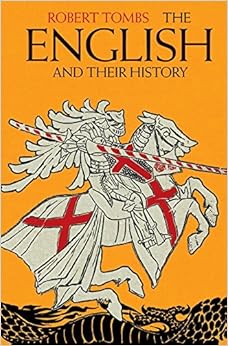Category Archives: cambridge university
Cambridge Professor Nicholas Boyle has been reported to the police for a “Hate Incident”. He called the English “the lager louts of Europe”.
Cambridge Professor Nicholas Boyle has been reported to the police for a “Hate Incident”. He called the English “the lager louts of Europe”.
The English Democrats’ Chairman, Robin Tilbrook has reported Professor Nicholas Boyle of Magdalene College, Cambridge to Essex police for making various insulting and offensive remarks about the English in his article published in the “New European” called “Leave voters are “larger louts of Europe”.
The problem with the English: England doesn’t want to be just another member of a team – Top Stories – The New European
In the article Professor Boyle wrote:-
“The referendum vote does not deserve to be respected because, as an outgrowth of English narcissism it is itself disrespectful of others, of our allies, partners and neighbours, friends, and in many cases, even relatives. Less resentful ruffians uprooting the new trees in the park and trashing the new play area, 17 million English, the lager louts of Europe, voted for Brexit in an act of geopolitical vandalism.”
He also wrote:-
“Those who voted Leave were being asked to express an emotion about membership, and the English, but not the Irish or Scots, felt so urgent a need to express it that they threw reason and practicality to the winds”
Professor Boyle also compared the English to Putin’s Russian which “suffers from the same trauma of imperial amputation”.
Robin Tilbrook, the Chairman of the English Democrats, said:- “When I read what this Professor had written I realised that he had deliberately, publically insulted the English generally. There is no doubt that he was meaning to be both insulting and offensive to the English nation.
Professor Boyle has therefore been logged by Essex Police as a “suspect” in a “Hate Incident” logged under Hate Crime reference number 42/17384/17.
Robin continued:- “Naturally as an Englishman I am offended by such a tirade by a person who is supposed to be and is paid to be a role model for students. I have therefore reported this to the police as a “Hate Incident”.
Attacking the English is just as much “Racist” as attacking other racial, ethnic and national groups.
We English should not put up with such anti-English racist insults and attacks without taking action against the perpetrators”
Robin Tilbrook
Chairman,
The English Democrats
Professor Robert Tombs on the Uniqueness of England
Professor Robert Tombs on the Uniqueness of England
For my birthday I was given a book:- ‘The English and their History’ by Professor Robert Tombs.
This is a book that I would recommend to anyone interested in the history of England and the English people. Here is an extract which particularly appealed to me. See what you think:-
“What is unique about England lies in the realm of politics: the early development, in response to Viking invasions, of a powerful kingdom occupying a defined territory, with a system of government in which a large part of the population participated, whether they liked it or not – through courts and juries, through tithings, through labour, taxation and military service, through the use of royal coins, and, for the powerful, through royal councils and parliaments.
Some historians have suggested that this made England the prototype of the nation-state. Similar institutions to those of England had existed at times in other parts of Europe, particularly under the empire of Charlemagne, but they were swept away. In England they survived. Being a powerful and yet vulnerable kingdom, able to raise taxes and impose law and order, and yet subject to disputed royal succession and foreign invasion, it’s Kings needed the support of their people, and the people high and low needed to control the actions of their Kings. Anglo-Saxon institutions, some of very ancient origin, were preserved and developed by the post-Conquest monarchy, which extended royal justice and created a common law.
The country of Bede’s gens Anglorum was never divided up into autonomous and warring feudal territories. Instead, the “community of the realm” imposed the rule of law on its powers and on its post-Conquest monarchs to a degree unique in Europe.
The common law in Magna Carta was seen not as revolutionary innovations, but as restatements of ancient principals. The distinctiveness of the common law became a source of pride …
This (took) on weighty ideological significance: the law was claimed to be above and beyond royal absolutism and hence the safeguard of liberty. This significance it has subsequently retained, at least subliminally.
Moreover by an unpredictable historical twist, “the insular and arcane learning of the small band of lawyers who argued cases in the corner of Westminster Hall became the law by which the third of the people of the earth were governed and protected, the second (after Roman Law) of the two great systems of jurisprudence known to the world”.
Continuity is crucial in this story. Many of the jumbled ingredients of nationhood, beliefs, myths, institutions, customs, loyalties – that were already present in the 9th Century were revived or reinvented in the 12th.
Thereafter they gained in potency because they persisted, deriving legitimacy from their ever growing antiquity, enhanced by linking them with the real or mythical pasts of St Edward the Confessor and King Arthur. England’s laws and institutions came to seem untouchable and immutable, as if in the nature of things, dating from time immemorial. They could then be seen in Edmund Burke’s famous phrase of 1791, as creating “a partnership between those who are living, those who are dead, and those who are to be born”. In such ways nations and identities are “constructed”: that is made by people, and not determined by geography, genes or blood.”



